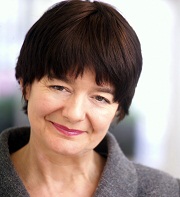Clodagh Bradley QC – One Crown Office Row, London
 Clodagh Bradley QC was one of 107 (of 237) applicants who were appointed to silk in 2016. She specialises in healthcare regulatory law, clinical negligence and inquests with a medical or psychiatric element and undertakes work in the Court of Protection. She has dealt with a range of disciplinary cases in the General Medical Council, General Dental Council and the Nursing and Midwifery Council, including cases involving concerns about alcohol and opiate misuse, criminal offences and performance issues. Her clinical negligence practice has included obstetric claims and surgical cases, including live donor transplant surgery. Clodagh has appeared on behalf of families, doctors, NHS Trusts, the police and the prison service. Many of her cases have included human rights issues and controversial ethical elements such as the withholding of treatment from elderly patients.
Clodagh Bradley QC was one of 107 (of 237) applicants who were appointed to silk in 2016. She specialises in healthcare regulatory law, clinical negligence and inquests with a medical or psychiatric element and undertakes work in the Court of Protection. She has dealt with a range of disciplinary cases in the General Medical Council, General Dental Council and the Nursing and Midwifery Council, including cases involving concerns about alcohol and opiate misuse, criminal offences and performance issues. Her clinical negligence practice has included obstetric claims and surgical cases, including live donor transplant surgery. Clodagh has appeared on behalf of families, doctors, NHS Trusts, the police and the prison service. Many of her cases have included human rights issues and controversial ethical elements such as the withholding of treatment from elderly patients.
We met in Clodagh’s chambers, One Crown Office Row, in London’s Inner Temple a week after the silk ceremony that had taken place in Westminster Hall on 22nd February. We spoke about diversity, not just in terms of the Diversity Competency which applicants have to demonstrate to the QC Selection Panel to a standard of excellence, but also in broader terms of the legal profession and regarding QC Panel’s own diversity.
Clodagh is the youngest of seven children and was the first in her family to obtain a university degree. She had planned to become an air hostess as this seemed a natural career choice as, having been raised on the Continent, she spoke several European languages. It was only when an inspiring teacher spotted Clodagh’s academic potential that she set her sights on a career as a barrister; something that had not previously crossed her mind. A career in the law had not been an option previously mentioned to her or class mates at her school in Brussels.
Clodagh would be delighted if she were to be viewed as a role model for younger female barristers who aspire to become silks as there were still far too few females being appointed to silk. She was one of 25 women, compared with 82 men appointed QC in 2016, which she said did not properly reflect the composition of the profession at senior-junior level, much less barristers as a whole – where there are now as many women as men being called to the Bar. The Panel is aware of this issue, and when announcing the outcome of the 2015/16 Competition, the Panel Chair, Helen Pitcher OBE expressed the Panel’s disappointment that the number of female applicants remained “stubbornly low”. Clodagh said she would also like to see a better gender balance on the QC Selection Panel, as (at February 2016) only two of the ten Panel members were women (now three). She also wondered whether the Panel properly reflected the profession or modern Britain in terms of other diversity characteristics, such as sexual orientation and ethnicity.
Clodagh recalled that as a young female barrister a senior colleague had advised her not to mention it if she intended to have children as that would hold back her career progress. Things have improved since then, Clodagh said, but there was still a very long way to go. We discussed some recent statistical findings that revealed that senior professional women were less likely to apply for advancement than their equally-qualified male peers. The reasons were complex but included concerns about the impact on their families where women continued to be the primary care-providers – as Clodagh herself is. Women were less likely than men to take a chance at something as demanding and costly as the QC Competition, Clodagh felt, due to cultural conditioning around gender roles: women tended to be almost “self-deprecating by instinct,” she said, whilst men were generally more likely to think positively and strategically about their careers.
We also briefly discussed the challenges the profession faced in dealing with mental health issues, where fears persisted around stigma. Clodagh mentioned the case of a young barrister who had felt that they should leave the Bar due to a mental health episode. Clodagh persuaded them that they would not have contemplated such action if they had, for example, broken a leg which took them out of work for a while. The person sought treatment, returned to work and now enjoys a promising career. Progress was being made in this sphere and Clodagh warmly welcomed initiatives by the profession such as the LawCare helpline and resources.
Turning to discussion of Clodagh’s experience of the QC competition, she said that she had spent a lot of time and energy on the application form, which she received feedback on from friends and colleagues, but no professional assistance, as her final decision to proceed with the application was relatively last minute. She did attend an interview training session, which was reassuring, but far from essential, in Clodagh’s view.
Specialising in mainly regulatory law, clinical negligence and inquests meant that Clodagh was not as well paid as some colleagues but the work was extremely interesting and provided great job satisfaction. Her work could make very important differences to people’s lives. Because of her speciality she did not appear before the most senior judges as much as some other applicants for silk, but her work in various tribunals had equipped her fully in experience and skills across the five competencies to the standard of excellence, including in both written and oral advocacy: for example, Clodagh carried out a great deal of cross-examination in highly complex and demanding cases in her tribunals.
Considering possible advice for those thinking about applying for silk, Clodagh said that it was vital to have a clear-eyed view of your abilities and how you measured up against the standard of excellence across the competencies. It was vital that you had the right sort of substantial cases in the previous two years to be able to demonstrate silk-level skills to the QC Panel – in your application form, via your assessments and in the interview. She agreed that there was a place for mentoring by those who had been through the process. People made a huge investment with their application, not just in terms of money and time but also emotional energy. It could be a massive blow to not succeed after putting so much of oneself into the process, so she urged future applicants to be sure that they were ready to apply.
Finally, Clodagh said that she had found the length of the whole process (10 months from start to finish) rather stressful and wondered whether this could be further shortened (it used to take 12 months). On the plus side, she warmly welcomed the fact that the silk ceremony was not held in half-term week in 2016, and also the clarity regarding the date and time of the issue of the email containing the final outcome of the application.
© Queen’s Counsel Appointments Ltd
- Date: March 25, 2019
- Category: QCA Profiles 2016


